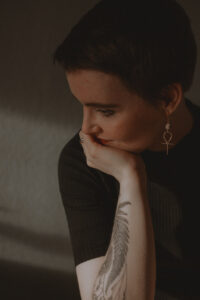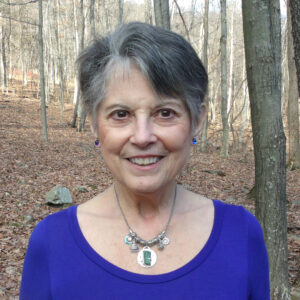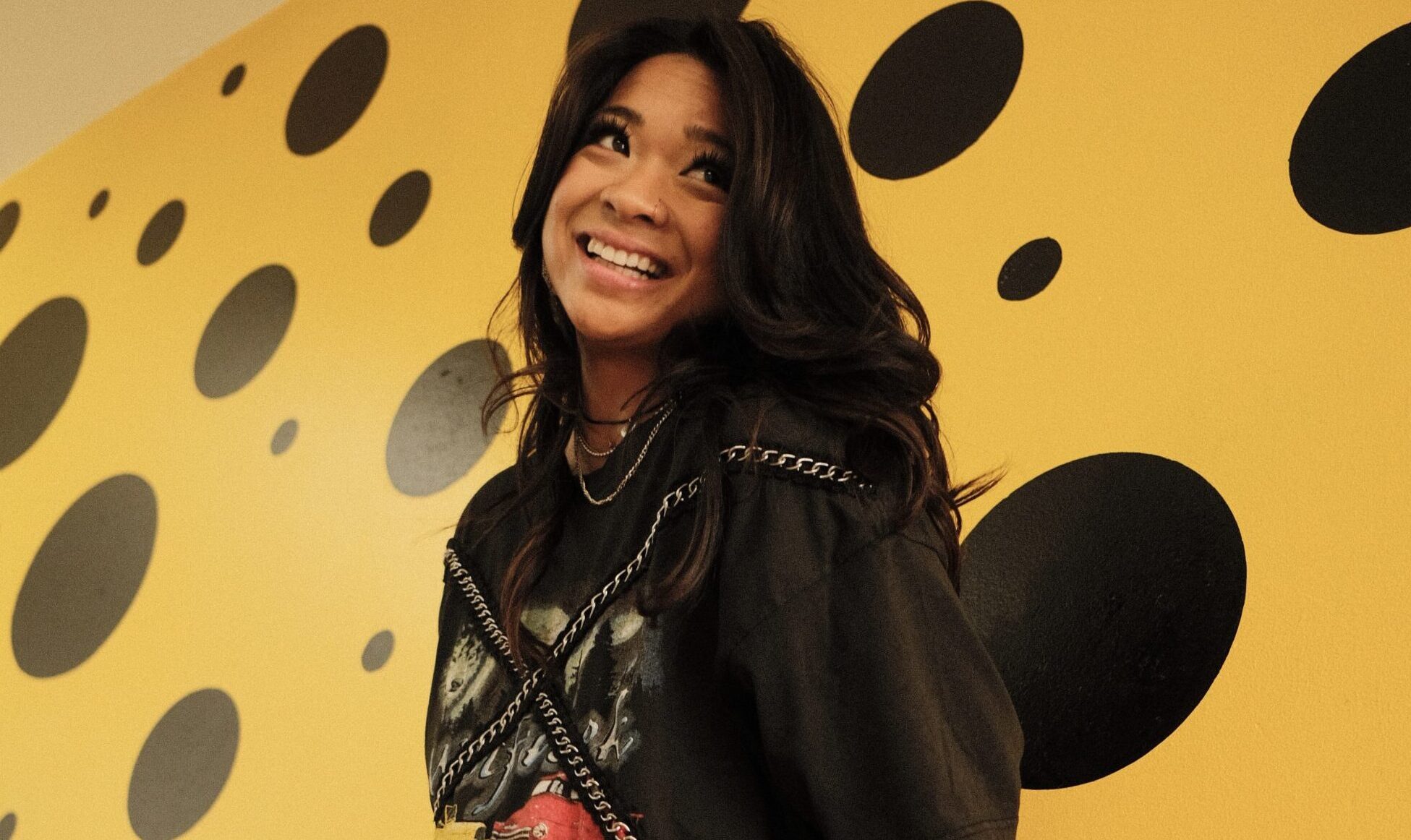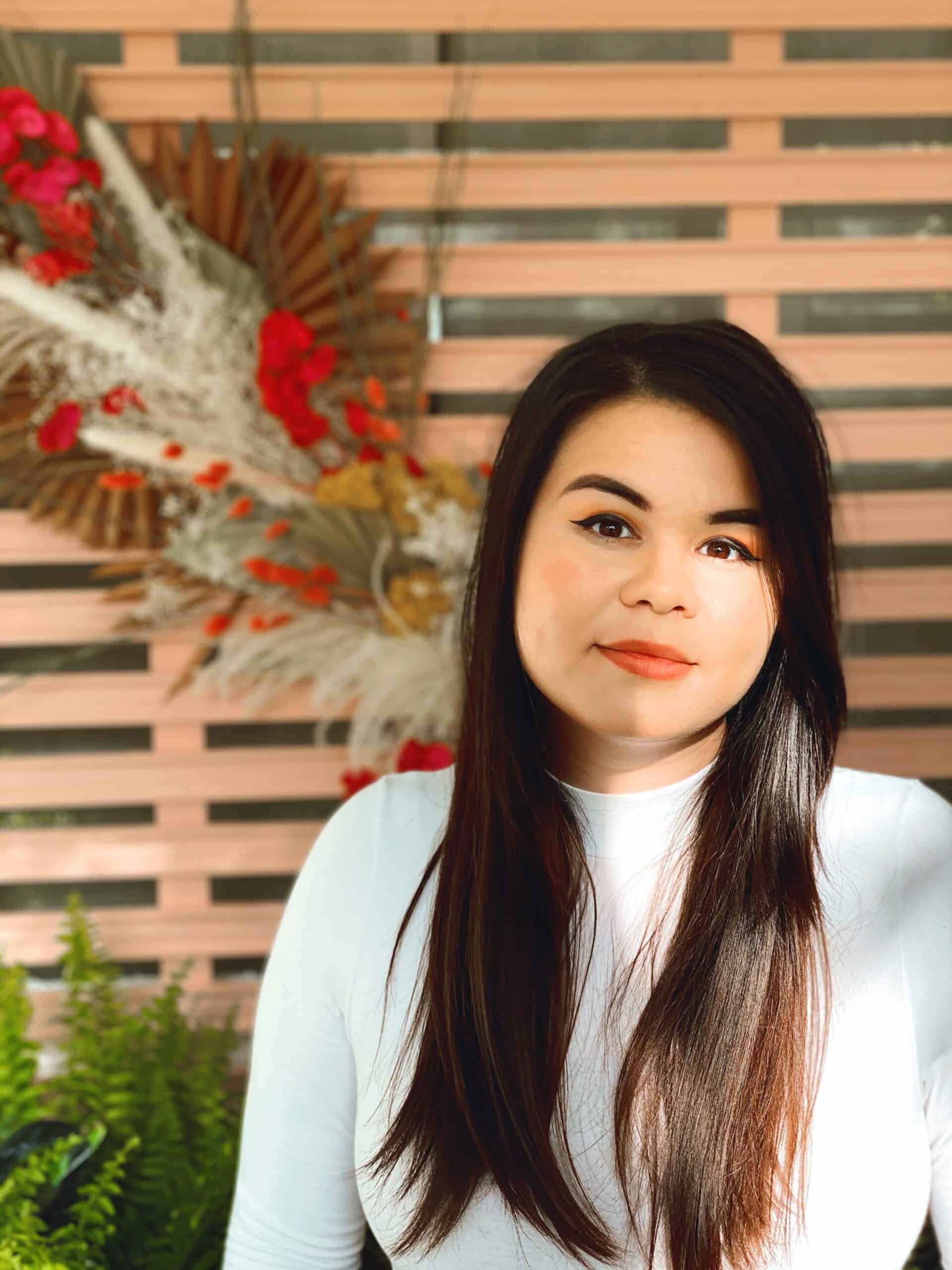In this heartfelt interview, Melanie Makovsky opens up about her journey from a Pennsylvania farm to navigating life with Early Onset Alzheimer’s. As she shares her experiences, Melanie reveals the resilience and love that have shaped her life, her dedication to raising awareness, and her unwavering hope for the future. Through her memoir, “Every Little Thing,” and her candid reflections, she inspires us to find strength in adversity, advocate for ourselves and others, and cherish every moment. Join us as Melanie takes us through her life’s story, offering wisdom and encouragement along the way.
Can you tell us a bit about yourself and your background?
I was born and grew up in Allentown, Pennsylvania (the one from that Billy Joel song). My father was the third-generation owner of a privately owned fruit and produce farm. My great-grandfather had purchased the land and started the farm business after moving to Allentown from Philadelphia. When he was no longer able to manage the farm he passed it down to his son, my grandfather, and when my grandfather grew ill it was passed to my father. He and my mother gradually made changes to the business model, opening a pick-your-own business called Strawberry Acres. From the time I was born that was my family’s livelihood. I have great memories of riding around on flatbed trucks and having plenty of open space to run around amongst the trees and fields.
I met my husband a few weeks after my high school graduation, at a friend’s wedding. I had just turned 18, and when I met him he was 26 and had a 2 year old daughter. He asked me to marry him just a few months later. The age difference and the fast engagement was a bit scandalous among our little corner of our community. No one seemed to think it made sense, let alone that it would last. We’ve now been married for 22 years and have 3 children, ages 20, 19, and 13, in addition to my step-daughter who is now 26. My husband recently retired out of the US Navy after 23 years of service. We now live in Leadville, Colorado, where he is a nurse at our local hospital.
What inspired you to write “Every Little Thing”?
Every Little Thing is the fulfillment of a lifelong goal for me. I started writing when I was 6 years old, after receiving a diary as a Christmas present. The earliest entries are hard to even decipher, since my spelling and writing skills were minimal at that age, but I enjoyed doing it and gradually it became a habit. I wrote daily, with little interruption, until high school, and after that I continued to write in a diary as many days as I could. I read The Diary of Anne Frank when I was 12 years old, and after finishing it I wrote, “I’m going to keep writing in a diary for my whole life, just in case something important happens, like with Anne Frank.” And I stayed true to that. My thought was that maybe someday the things I wrote might inspire and help someone else. Keeping up with diary entries got harder after high school, and significantly more difficult after I had kids, so there were some large gaps in time that I didn’t cover. But whenever I pulled out my diary and wrote it was rewarding, and I knew that someday I wanted to publish it.
How did your family’s history with Alzheimer’s disease impact your decision to share your story?
My father was diagnosed with Alzheimer’s when he was 50. My father’s father had died of Alzheimer’s in 1986, and my grandfather’s sister suffered the same fate shortly afterward. Knowing this, and with the understanding that Alzheimer’s can be carried by genetics (albeit rarely), my mother insisted that my father be tested for any genetic link to this disease. In 2005 we learned that my dad carried a genetic mutation on his 14th chromosome, and that this mutation indicated an almost 100% chance of the development of young onset Alzheimer’s in all its carriers. When my mother called me to give me this news, I had a 2 year old daughter and a newborn son.
Knowing that I was a high risk for Young Onset Alzheimer’s wasn’t necessarily what inspired the book, since I’d been thinking about publishing or at least releasing my writings for years before that, but it was enough for me to get serious about it. Of course, with having two small children it seemed impossible at the time, but I hung onto the idea and hoped and prayed that someday I’d be able to make some time to write.
My father died of his disease in November 2013. In 2016 the Navy moved my family and I to the San Diego, California area. Then, sometime in 2017, my mom called from Pennysylvania and suggested I watch an episode of 60 Minutes that she’d just seen. Since she was on the east coast and I was on the west, the same episode would come on my tv 3 hours later than it had hers. The segment was on Alzheimer’s research that focused on studying individuals that may carry the rare genetic type of Alzheimer’s my dad had, in an attempt to find a cure. The research was being conducted world-wide, and one of the US locations was in San Diego. At this point I was almost 35 years old, and had three children in grade school. I enrolled in the study a few weeks later, and will continue to be a study participant for the rest of my life.
The study offered free genetic testing to anyone willing to enroll. In 2018, about a year after I had enrolled in the study and started providing observational data through blood samples and cognitive testing, I decided that it was time to find out whether I carried my father’s gene mutation. The test came back positive. Having received that news I knew that, without a significant breakthrough in Alzheimer’s science, I had about 10-15 years to live. At that point I felt that I had two big responsibilities that only I could fulfill – to become a study subject for experimental medical treatments to prevent or stop Alzheimer’s, and to publish this book.
Can you describe the moment you found out you carried the genetic form of Alzheimer’s?
Devastated, but not surprised. I think that, on some level, I knew I had this disease even without the genetic test to confirm it. The idea that this could happen to my loved ones or myself had been tucked somewhere in the back of my mind since my grandfather had died. I grieved for weeks, unable to do anything more than care for my kids, I went to therapy, and I increased the dosages of the depression medications I was already taking. Now, six years later, I’m much more comfortable talking about it. My eldest child has autism, and my second child has ADHD, and both were diagnosed when anyone without a direct connection to spectrum disorders didn’t know how to respond to that. I’d become an advocate for them by necessity. So I simply began advocating for myself and for others who have Early Onset Alzheimer’s.
What are some of the most significant challenges you’ve faced since your diagnosis?
I think I’ve had an easier time adjusting to an Alzheimer’s diagnosis than most people would. Unlike most other types of Alzheimer’s, I was able to find out that I had the disease before I had any symptoms. And Alzheimer’s was already familiar to me at that point. I lived too far away from my parents to do much caretaking for my dad when he was alive, but I was there enough to see what he lost to the disease and what he didn’t. One of the greatest blessings was to see that, while he sometimes didn’t remember my name and may have forgotten that I was his daughter, my dad still remembered that he loved me. When you’ve walked through the disease with someone you’re close to, it takes away some of the fear and the mystery of it. That said, I still have moments when I am devastated to be in this position. I am symptomatic now, and despite my long-term experience with this disease, I still grieve. When I forget something I should know and I have to ask someone to repeat something, or find something for me, I feel angry and embarrassed. I feel guilty toward my husband because I end up asking him the same questions over and over, or misplacing things, or forgetting things I’ve committed to doing. I easily lose track of time, both clock time and calendar time, and that results in missed appointments and deadlines. And I deal with a lot of fear. I’m afraid of making mistakes that hurt me or my family, I’m afraid of causing pain or damage because I have forgotten or become confused, and most of all, I’m ashamed that I have put my children at risk for this disease, and afraid that they too will have to arrange their lives around the possibility of EOAD.
How do you stay motivated and positive despite the hardships?
To be honest, a lot of the time I don’t, and I don’t necessarily aim to be consistently positive either. Instead I work to reframe and/or refocus my thinking. Ignorance about my disease, or jokes about it, hurt me a lot, and make me angry. It doesn’t happen often, but when someone makes a joke about Alzheimer’s, like forgetting something themselves and joking that they must be senile, it hurts me a lot, but at the same time I try to make that into a teaching moment. When someone makes a joke about dementia, and I look them in the eye and tell them that I have dementia and it’s not funny, they remember that moment, and they think twice about throwing out that kind of statement again. I used the same tactic when my daughter was diagnosed with autism, at a time when people thought that autism in girls was rare or nonexistent, or was caused by poor parenting or watching too much tv. I love that having to advocate for my kids taught me to advocate for myself.
In terms of grief, I don’t avoid it or hide it, although I do try to set myself up to grieve only in safe, confidential environments. In my own home or among family and friends I willingly grieve when I need to. I’ve always worn my emotions on my sleeve, so most of them know to expect that from me. Of course, this disease has brought with it the worst grief I’ve ever experienced, and there’s little that anyone can say that will change that. So I often prefer to grieve privately, behind closed doors. I don’t necessarily hide it from others, but I want my family to be able to be separate from it. They’re grieving too, but I don’t want to trigger them when I’m upset myself.
Can you share a specific story from your memoir that holds special significance to you?
One of my favorite storylines in the book involves my relationship with my stepdaughter’s mother. She and I started off our relationship alright, but given her connection with my husband it was always a strained relationship. Over time I was told a number of things about her that destroyed any positive feelings I had toward her, and eventually we cut off contact with her and my stepdaughter for years. But eventually we reconnected, with apologies and forgiveness on both sides, but we had hurt her more than she’d hurt us. Yet she forgave us without requiring any explanations or reparations other than a renewed friendship.
How has participating in drug trials influenced your perspective on your condition and the future of Alzheimer’s research?
I try not to hang my hopes on being cured of this disease. The advancements in Alzheimer’s research, especially in the last few years, are exciting and very hopeful, but I don’t claim them for myself. Of course I would love to be cured of this disease, to live a long, grateful life, but I look at that outcome as possible, not probable. I focus my attention more on the possibility of preventing or eliminating the disease for my children’s generation. Of course I’d love to be one of the first to be cured of Alzheimer’s, but with what I know about the stages of the research currently and where I’m at in my own disease progression, it’s safer to think of myself as a conduit for a cure for the next generation. Balancing hope with acceptance keeps me steady.
What role has your support system played in your journey?
I have so many wonderful people around me. My husband has in some ways always been my caregiver. We’ve been a single-income family from the beginning. We didn’t plan it that way; I always had the intention of entering the workforce after our children were all in school, and I have had part time jobs here and there, but when the time came when I could begin a full time career, so did the Alzheimer’s diagnosis. My husband has worked to support me and our kids, and we’ve never lacked for anything. That includes his love, affection, forgiveness, and fortitude. Nor does he shy away from household work. If something needs to be done, he does it without complaining. Beyond that, he is also my greatest encourager, a wonderful listener, and he accepts my weaknesses gracefully. To have found a partner like him on the first try has to be a miracle.
My kids are a great support system as well. I wish they didn’t have to be, but I’m proud to say that we’ve raised good, loving, caring young people. The elder two are both learning to live on their own now, and doing well, but they still check in regularly. There have been times when I needed their physical or emotional support in a way that I wished I didn’t. When I was grieved they grieved with me, even though I wished they didn’t have to, and even now I can ask them for help when I don’t trust my memory to work the way it should. Sometimes it’s as simple as “Tell me when it’s 4PM because I have to be somewhere at 4:30,” but they don’t fail me. They know that only a few years ago I had to do the same for them.
And even beyond that I have a small but strong network of family and friends that regularly check in, pray for me, and keep track of how I’m doing, mostly on social media. When I wrote the book their numbers increased substantially thanks to the collaborative community my publisher created for us. I have many friends whom I’ve never met in person.
What advice would you give to other women who are dealing with difficult diagnoses or genetic conditions?
This first thing that comes to mind is hope. While I don’t subscribe to the kind of hope that “names and claims” I do believe that hope has power to make change, and that change, from my experience, begins in your own mind. I don’t automatically look on the bright side, but in any situation I do take time to evaluate. What parts of this situation do I have control over? The top answer, for me, is almost always my own thoughts and feelings. I used to tell people, even after my dad died, that if I found out that I had Alzheimer’s as well, I would commit suicide. I thought that because I looked at that diagnosis as an automatic death sentence, and that thinking isn’t entirely wrong. Like I said, I still don’t expect that I’ll be cured of this. But is there anything I can do because of this, to help me or to help others? There’s almost always is. For me, I could enroll in drug trials, I could shift my perspective on what a bad day really looks like. I can take a serious look at what might be on my “bucket list” and start actually fulfilling it. I can tell the people I love that I love them, sincerely and honestly, and I can do that as often as possible. I can let go of some of my inhibitions and worry less about what other people think of me. I can celebrate every good moment, even the most mundane ones, and more easily let go of the frustrations of small inconveniences. The thing is that anyone can start thinking this way, but evidence of your own mortality tends to make it more meaningful.
How do you balance raising awareness for Alzheimer’s with managing your personal life?
Raising awareness has become a part of my personal life. My mom is very involved in fundraising and advocacy through the Alzheimer’s Association, and I’m proud that she does that, although it’s not my style. I try to raise awareness by not hiding my illness. I do get embarrassed when I forget something or mess something up, but when I do, I tell people why. When I meet someone new and they tell me their name I almost always warn them that I won’t remember it because I have Alzheimer’s. Some people ask me more about it and I tell them my story, but others just say Ok. And that’s fine. The point is that I’m putting a face, an unexpectedly young face, on the disease. Here I am, a normal person, doing a normal thing, but I have Alzheimer’s. So maybe next time that person sees me or another normal-looking person doing a not-normal thing, they won’t cast an uninformed judgement, or they’ll ask that person if they need help, or they’ll get to know that person and learn what it’s like to be him. Choosing to understand and accept the differences of the people around you is love.
What message do you hope readers take away from your memoir?
I want readers to consider or reconsider the idea of a higher power that loves them, and to put their hope and trust in that higher power, even when things don’t seem to be going right. I want us to see ourselves as a single part of a much larger, more beautiful picture, one that redeems our hardship and pain for the good of humankind. When we look at ourselves as an individual piece of a beautiful, useful, meaningful whole, we can see the beauty in the differences around us, and we can feel confident that we are right where we need to be.
How has writing “Every Little Thing” helped you process your experiences?
From my background in academic research and writing, I knew my book needed a thesis, an overarching truth that ties together my experiences into a valuable universal truth. But because this is a book about my life, that meant it also had to stay true to me and my experience. Even as I was drafting, even after I signed the book contract, I didn’t necessarily know what that would be, but I knew that when I figured it out it would not only communicate the message of the book, but the message of my life. So I let myself write spontaneously, and the act of getting it all down in a cohesive whole produced one of greatest feelings of validation and hope and joy that I have ever experienced. We all look for meaning in our lives, but mine is published. The joy in that in indescribable.
What are your hopes for the future of Alzheimer’s research and treatment?
I’m fully confident in putting my faith in the research that’s being done right now. As far as I know there is no end plan in this research other than curing and/or preventing the disease altogether. While I am in a drug trial that seeks to cure the disease or halt its progression in already its early symptomatic stages, there is another study going on for individuals who either have the same type of gene mutation that I do or are at risk for it, but are not symptomatic. In other words, these individuals have a family member with genetic Alzheimer’s, but they do not have any symptoms themselves. Even if the study I’m in is unsuccessful in stopping or slowing the progression of Alzheimer’s, this prevention study may provide an answer to preventing or eliminating the disease. There are also promising ideas around the idea of embryo selection, although we don’t yet have the knowledge to identify an embryo that carries non-genetic form of Alzheimer’s. There are still many different directions and hypotheses to work with, and I’m proud to be a small part of that puzzle.
Do you have any plans for future projects or books?
The simple answer to this is no. The book writing process was hard on my mind and body. I had to set aside and/or eliminate family events, such as graduation parties/celebrations for my two oldest children. There were periods of time that I couldn’t write because I felt too ill, and it was a strain on our whole family. Despite all that they still supported me through it. I doubt I will every stop writing, but the process of submitting, publishing, and promoting as it is today means that writers have to market themselves for the most part. I used to enjoy social media and publishing articles online, but when I invested in publishing a book all of that became another job, and one that I had much less experience in. In the future I plan to write when I am inspired to, to perhaps contribute as a guest writer in other blogs or publications, and to contribute short works and poetry when I can.
https://everylittlethingbook.org/






